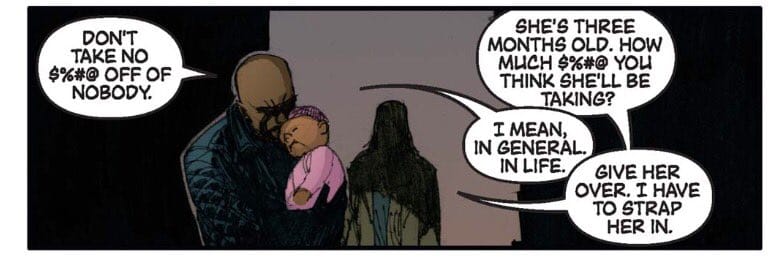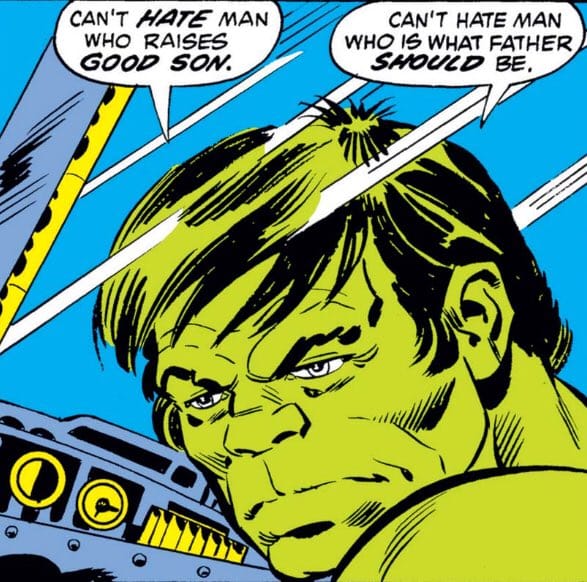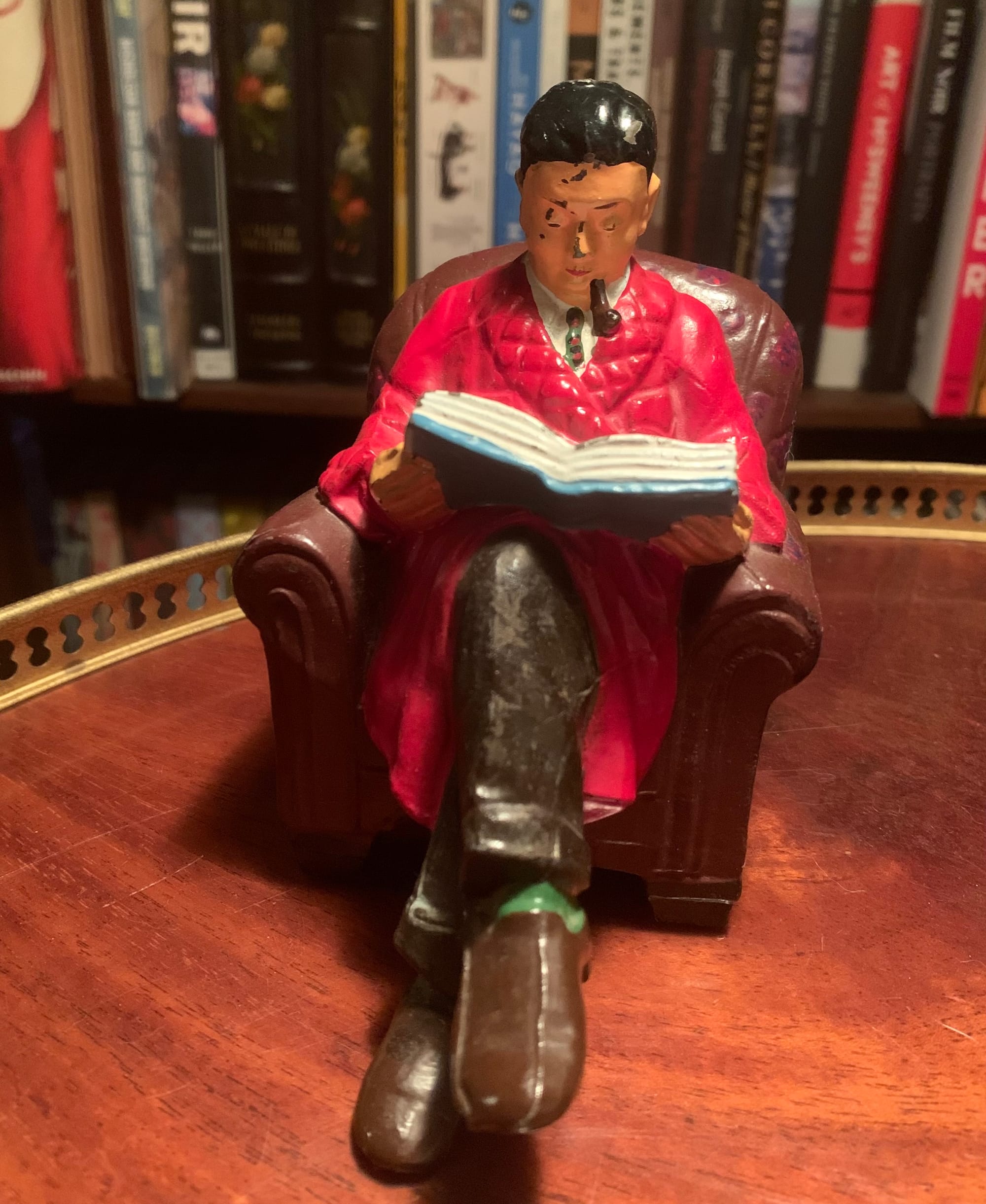
I laugh at all, only secure, lest my suit go amiss, my ships perish, corn and cattle miscarry, trade decay, I have no wife nor children good or bad to provide for.
—Robert Burton, The Anatomy of Melancholy
In those dayes fathers were not acquainted with their children.
—John Aubrey, on early 17th-century parenting
In the old ignorant times before woomen were Readers ye history was handed downe from mother to daughter, &c.
—John Aubrey, on early 17th-century parenting
I took my parents to be, as everyone does, vaguely biblical, when in hindsight they were just kids.
—Darran Anderson, Inventory
Even at the outset . . . my father, relationless, ageless, explanationless, resembled a god. The similarity grew with acquaintance.
—Robert Aickman, The Attempted Rescue
Like God, my father expressed himself through absence.
—Rachel Cusk, “Aftermath”
In a town of 15–16,000, most people know who they are, who their parents were, and it gives them a kind of mythical quality.
—William Maxwell, Conversations with William Maxwell
To a child, the adult world is oppressive in part because of its apparent competence, its air of knowing what ought to be done and when and what to call everything.
—Phil Christman, How to Be Normal
Parents are sometimes a disappointment to their children; they turn out badly.
—Anthony Powell, A Writer's Notebook
My parents were not handy. They fully knew what they were never doing. A broken lamp would stay broken.
—Heidi Julavits, The Folded Clock
Well, he had wanted respectability, and the detestation of one's children was apparently one of the prices to be paid.
—Donald E. Westlake, High Adventure
Above all, he wanted to stop being a child without using the cheap disguise of becoming a parent.
—Edward St. Aubyn, Some Hope
To have had disagreeable parents excused one's faults; to have disagreeable children underlined them. . . . A father might possibly avoid blame for the awfulness of his children—a mother never.
—Alison Lurie, The War Between the Tates
So many several ways are we plagued and punished for our father's defaults.
—Robert Burton, The Anatomy of Melancholy
The denial of one's father, in whatever spirit, requires great sympathy between the denier and the denied.
—Frederick Exley, A Fan's Notes
She tried to do everything her mother had done, to be a little of what she had been, conscious only of mediocrity.
—Henry James, “The Marriages”
I abhor their company because I can only regard children as defective adults. I hate their physical ineptitude, find their jokes flat and monotonous.
—Evelyn Waugh, letter to Lady Diana Cooper
Her mother had lived long enough to be disappointed by her daughter's failure to be disappointed.
—Sarah G. Perry, The Essex Serpent
Embarrassment seems to be the sole means of communication between parents and children.
—Heinrich Boll, The Clown
There she gave birth to a second male child, whom she named The Outcast.
—Boccaccio, The Decameron
My Father was very fond of me, and I was my mother’s darling . . . in consequence I was miserable.
—Samuel Taylor Coleridge, letter to Thomas Poole, October 9, 1797
When the word “sadist” was first explained to Arthur he is reported to have nodded in recognition: “Ah, that is what my father must have been.”
—Alexander Waugh, Fathers and Sons: The Autobiography of a Family
When it comes to blaming one’s parents, everyone loves the feel of a lighted torch in the hand.
—Carlene Bauer, Frances and Bernard
Even if I could make myself feared, I would much rather make myself loved.
—Montaigne, “Of the Affection of Fathers for Their Children”
The only redemption for having a bad father is being a good one.
—Don Winslow, The Power of the Dog

Like God, Art was for my mother a very dirty word.
—Janet Hobhouse, The Furies
Charles’s father built Victoria Station & showed Charles a picture of Chatterton to dissuade him from poetry.
—Virginia Woolf, diary, March 30, 1935
Ruskin was always grateful, and a bit surprised, that his parents shared Byron with him, given the sauciness of some of his themes.
—Suzanne Fagence Cooper, To See Clearly: Why Ruskin Matters
My mother brought me up on Yeats as if he were Mother Goose.
—Susan Howe, The Midnight
My mother thought poetry foolishness, and any young man who had addressed a sonnet to her had been briskly struck off the list.
—Priscilla Napier, A Late Beginning
That my father is a poet has, at least, saved me from any false reverence for poets.
—Robert Graves, Goodbye to All That
To cap the climax I have to endure my mother’s apparently quenchless desire that I become an actor!
—Hart Crane, letter sent from Hollywood, 1927
As far as the education of children is concerned, I think they should be taught not the little virtues but the great ones. Not thrift but generosity and an indifference to money; not caution but courage and a contempt for danger; not shrewdness but frankness and a love of truth; not tact but love for one’s neighbor and self-denial; not a desire for success but a desire to be and to know.
—Natalia Ginzberg, The Little Virtues
We belong as much to our moment in history as to our parents.
—Rachel Cusk, “Aftermath”
I don't believe my mother was more subject to attacks of theories than many other parents of her time.
—Gwen Raverat, Period Piece
Her mother’s “decisions,” especially those pertaining to Helena, were not simply announced, but promulgated.
—Mary McCarthy, The Group
“Neither clever nor amusing” had been his mother’s verdict on anyone she disliked.
—Anita Brookner, A Private View
His mother was a catastrophist who didn’t entirely trust Jesus but talked about him so often that Roy used to think they were related.
—Nina Stibbe, One Day I Shall Astonish the World
When my mother begins to be outraged at other people’s behavior, she’s temporarily saved from the deepest despair.
—Tove Ditlevsen, Youth
The truth of it was that there was something wrong with my mother. She became caught on the everyday the way clothes caught on nails.
—Nan Z. Da, Yale Review
Her grandmother used two distinct ways of communication. She either addressed a person or the air.
—Sybille Bedford, A Favourite of the Gods
My mother had lived on hope—and hope alone—for so long that she could no longer distinguish between the likely and the unlikely.
—Norah Lofts, The Town House
Willett’s mom’s questions were popcorn popping with nobody watching the microwave.
—Robert Gipe, Weedeater
Punitive and protective, that’s my mother.
—Bette Howland, “Birds of a Feather”
To my father, the highest commandment was to do whatever his sons wanted him to do, especially if it meant to go fishing.
—Norman Maclean, A River Runs Through It
He gave the impression of someone who had overshot success and landed somewhere else.
—Michael Holroyd, on his father, Basil Street Blues
There’s one thing I owe to my father, that is his sense of pathos. Oh, what a sad little home ours was.
—Edward Burne-Jones
I inherited a vile melancholy from my father, which has made me mad all my life.
—Samuel Johnson
My mother . . . always preferred to settle things wrongly rather than leave them unsettled.
—Richard Russo, Elsewhere
My father really hated clarity.
—Anthony Powell, The Kindly Ones
Delighting in the truth while generously contemptuous of the facts.
—Henry James, on his father, A Small Boy and Others
Being proved wrong does little to make an erring son forgive his disapproving father.
—Adrian Tinniswood, The Long Weekend
Sometimes, in my capacity as mother, I find myself sitting open-mouthed and terrified before my own children.
—Shirley Jackson, Life Among the Savages
Every day we find ourselves doing, saying, or thinking things that would have been impossible to our fathers.
—Virginia Woolf, "How It Strikes a Contemporary"
“In my young days girls spoke respectfully to their fathers.”
“They probably had a different kind of father.”
—Wodehouse, If I Were You
Of course these boys are more serious—this is the generation that saw their mothers drunk.
—F. Scott Fitzgerald, notebook entry 1766
Plenty of boys grow up in Brooklyn and don’t ever get into trouble.
—St. Clair McKelway, quoting the mother of a Times Square stick-up man, in True Tales from the Annals of Crime and Rascality
When you’re a teenager, a cemetery is just another place your parents aren’t.
—Virginia Jones, on making out in cemeteries as a teen, on Jordan, Jesse, Go!
For every day he lived, my father could imagine two or three others that he would like to live if he did not have to do what he had to do.
–Wendell Berry, “Where Did They Go?”
Mother spent a lot of her spare time choosing places to be buried in.
—Gerald Durrell, My Family and Other Animals
When time will go on and you
will not be in time.
What is it we were just
talking about. Your years.
—Jorie Graham, from “With Mother in the Kitchen”
I wish you many happy returns and I am your affectionate father. Postscript. It is time you knew it is all rot about fairies and Father Christmas.
—Hilary Lushington Holman Hunt, letter to his daughter Diana Holman-Hunt
